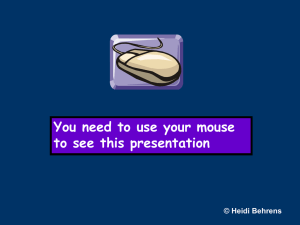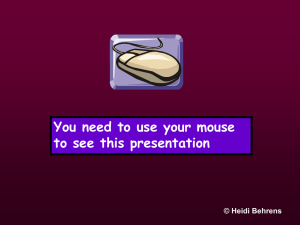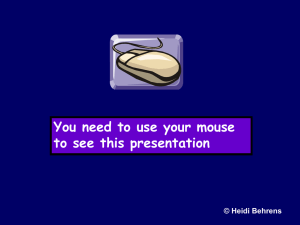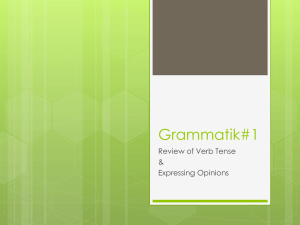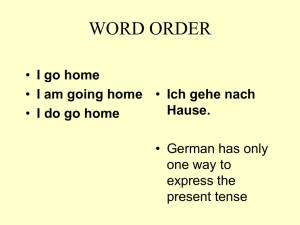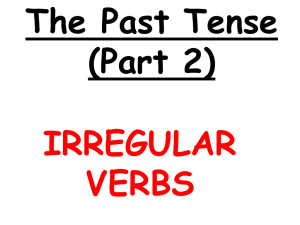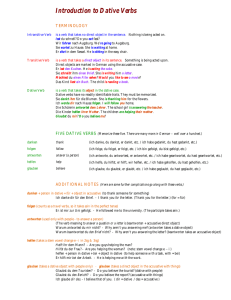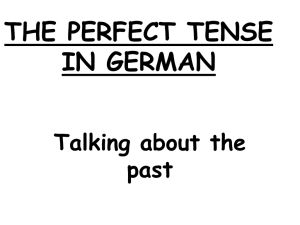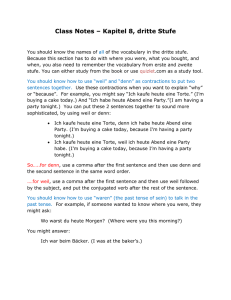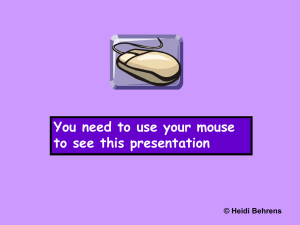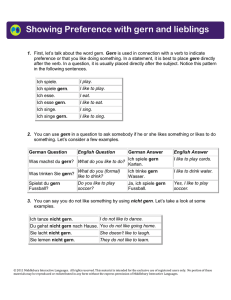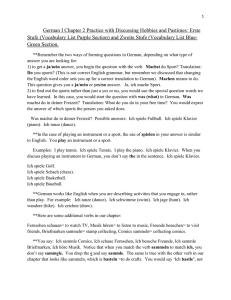`to play` is an INFINITIVE and is `spielen` in German
Werbung
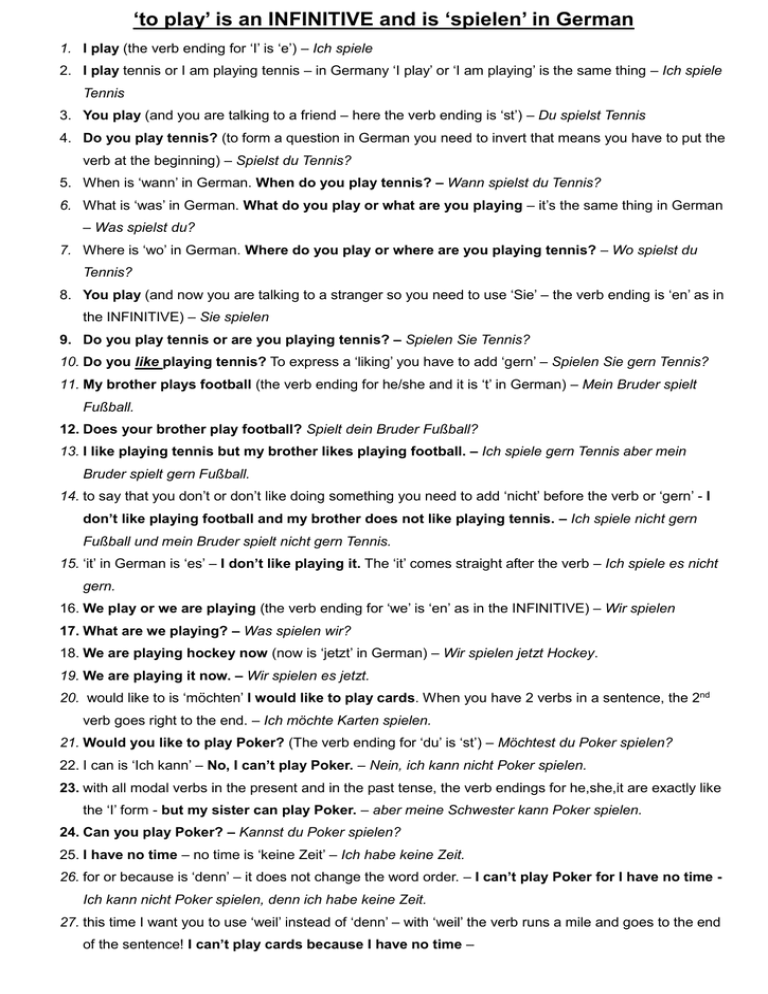
‘to play’ is an INFINITIVE and is ‘spielen’ in German 1. I play (the verb ending for ‘I’ is ‘e’) – Ich spiele 2. I play tennis or I am playing tennis – in Germany ‘I play’ or ‘I am playing’ is the same thing – Ich spiele Tennis 3. You play (and you are talking to a friend – here the verb ending is ‘st’) – Du spielst Tennis 4. Do you play tennis? (to form a question in German you need to invert that means you have to put the verb at the beginning) – Spielst du Tennis? 5. When is ‘wann’ in German. When do you play tennis? – Wann spielst du Tennis? 6. What is ‘was’ in German. What do you play or what are you playing – it’s the same thing in German – Was spielst du? 7. Where is ‘wo’ in German. Where do you play or where are you playing tennis? – Wo spielst du Tennis? 8. You play (and now you are talking to a stranger so you need to use ‘Sie’ – the verb ending is ‘en’ as in the INFINITIVE) – Sie spielen 9. Do you play tennis or are you playing tennis? – Spielen Sie Tennis? 10. Do you like playing tennis? To express a ‘liking’ you have to add ‘gern’ – Spielen Sie gern Tennis? 11. My brother plays football (the verb ending for he/she and it is ‘t’ in German) – Mein Bruder spielt Fußball. 12. Does your brother play football? Spielt dein Bruder Fußball? 13. I like playing tennis but my brother likes playing football. – Ich spiele gern Tennis aber mein Bruder spielt gern Fußball. 14. to say that you don’t or don’t like doing something you need to add ‘nicht’ before the verb or ‘gern’ - I don’t like playing football and my brother does not like playing tennis. – Ich spiele nicht gern Fußball und mein Bruder spielt nicht gern Tennis. 15. ‘it’ in German is ‘es’ – I don’t like playing it. The ‘it’ comes straight after the verb – Ich spiele es nicht gern. 16. We play or we are playing (the verb ending for ‘we’ is ‘en’ as in the INFINITIVE) – Wir spielen 17. What are we playing? – Was spielen wir? 18. We are playing hockey now (now is ‘jetzt’ in German) – Wir spielen jetzt Hockey. 19. We are playing it now. – Wir spielen es jetzt. 20. would like to is ‘möchten’ I would like to play cards. When you have 2 verbs in a sentence, the 2nd verb goes right to the end. – Ich möchte Karten spielen. 21. Would you like to play Poker? (The verb ending for ‘du’ is ‘st’) – Möchtest du Poker spielen? 22. I can is ‘Ich kann’ – No, I can’t play Poker. – Nein, ich kann nicht Poker spielen. 23. with all modal verbs in the present and in the past tense, the verb endings for he,she,it are exactly like the ‘I’ form - but my sister can play Poker. – aber meine Schwester kann Poker spielen. 24. Can you play Poker? – Kannst du Poker spielen? 25. I have no time – no time is ‘keine Zeit’ – Ich habe keine Zeit. 26. for or because is ‘denn’ – it does not change the word order. – I can’t play Poker for I have no time Ich kann nicht Poker spielen, denn ich habe keine Zeit. 27. this time I want you to use ‘weil’ instead of ‘denn’ – with ‘weil’ the verb runs a mile and goes to the end of the sentence! I can’t play cards because I have no time – Ich kann nicht Karten spielen, weil ich keine Zeit habe. 28. You can always use the INFINITIVE form for the ‘we form’ apart from one exception: ‘to be’ is ‘sein’ in German but ‘we are’ is ‘wir sind’. The INFINITIVE form for ‘can or to be able to’ is ‘können’ - We can play video games – Wir können Videospiele spielen. 29. Why is ‘warum’ in German – Why can’t we play it? - Warum können wir es nicht spielen? 30. . I must is ‘Ich muss’– I must play with Molly. Molly is my sister - Ich muss mit Molly spielen. Molly ist meine Schwester. 31. ‘later’ is ‘später and the INFINITIVE for ‘must or to have to is ‘müssen’ – We must play it later - Wir müssen es später spielen. 32. In the Present Tense you can say ‘I must or I have to’ but in the Past Tense you can only say ‘I had to’ which is ‘Ich musste’ - I had to play with Molly. – Ich musste mit Molly spielen. 33. We had to play in my room. – Wir mussten in meinem Zimmer spielen. 34. We could not in the sense of ‘we were not able to’ is ‘wir konnten’ - We could not play in the living room. – Wir konnten nicht im Wohnzimmer spielen. 35. It was untidy (unordentlich) ‘it was’ is ‘es war’ – Es war unordentlich. 36. We could not play in the living room because it was untidy – Wir konnten nicht im Wohnzimmer spielen, denn es war unordentlich or weil es unordentlich war. 37. to say ‘I am going to or I will’ use ‘Ich werde’ – I will play Basketball. – Ich werde Basketball spielen. 38. tonight is ‘heute Abend’ – I will play basketball tonight – Ich werde heute Abend Basketball spielen. 39. tonight we will play on the computer (You need to invert or swap the subject ‘we’ and the verb ‘will’ when you start with the time phrase) – Heute Abend werden wir am Computer spielen. 40. ‘would’ is ‘würden’ – I would is ‘Ich würde’ -I would play on the computer. Ich würde am Computer spielen. 41. We would play on the computer but we have not much time - Wir würden am Computer spielen aber wir haben nicht viel Zeit. 42. to step back into time using the Perfect Tense you start off from starting block ‘to have’ or from starting block ‘to be’. For the verb ‘spielen’ you have to start off from starting block ‘to have’ – ‘haben’ 43. I have is ‘Ich habe’ 44. to form the past participle from ‘spielen’ you step back into ‘gespielt’ which goes to the END of the SENTENCE. 45. ‘I played’ or ‘I have played’ is ‘Ich habe.... gespielt’ 46. ‘She played’ or ‘she has played’ – Sie hat gespielt 47. ‘We played’ or ‘we have played’ is ‘Wir haben gespielt’. 48. Have you ever played Hockey? Ever is ‘schon einmal’ and you are talking to a friend – Hast du schon einmal Hockey gespielt? 49. We played it or we have played it at school – Wir haben es in der Schule gespielt. 50. Yesterday I was very tired because I played hockey at school - use ‘denn’ – Gestern war ich sehr müde, denn ich habe Hockey in der Schule gespielt. 51. Yesterday I was very tired because I played hockey at school – this time use ‘weil’ – the first verb in the ‘weil’ sentence goes to the very END OF THE SENTENCE!– Gestern war ich sehr müde, weil ich Hockey in der Schule gespielt habe.
